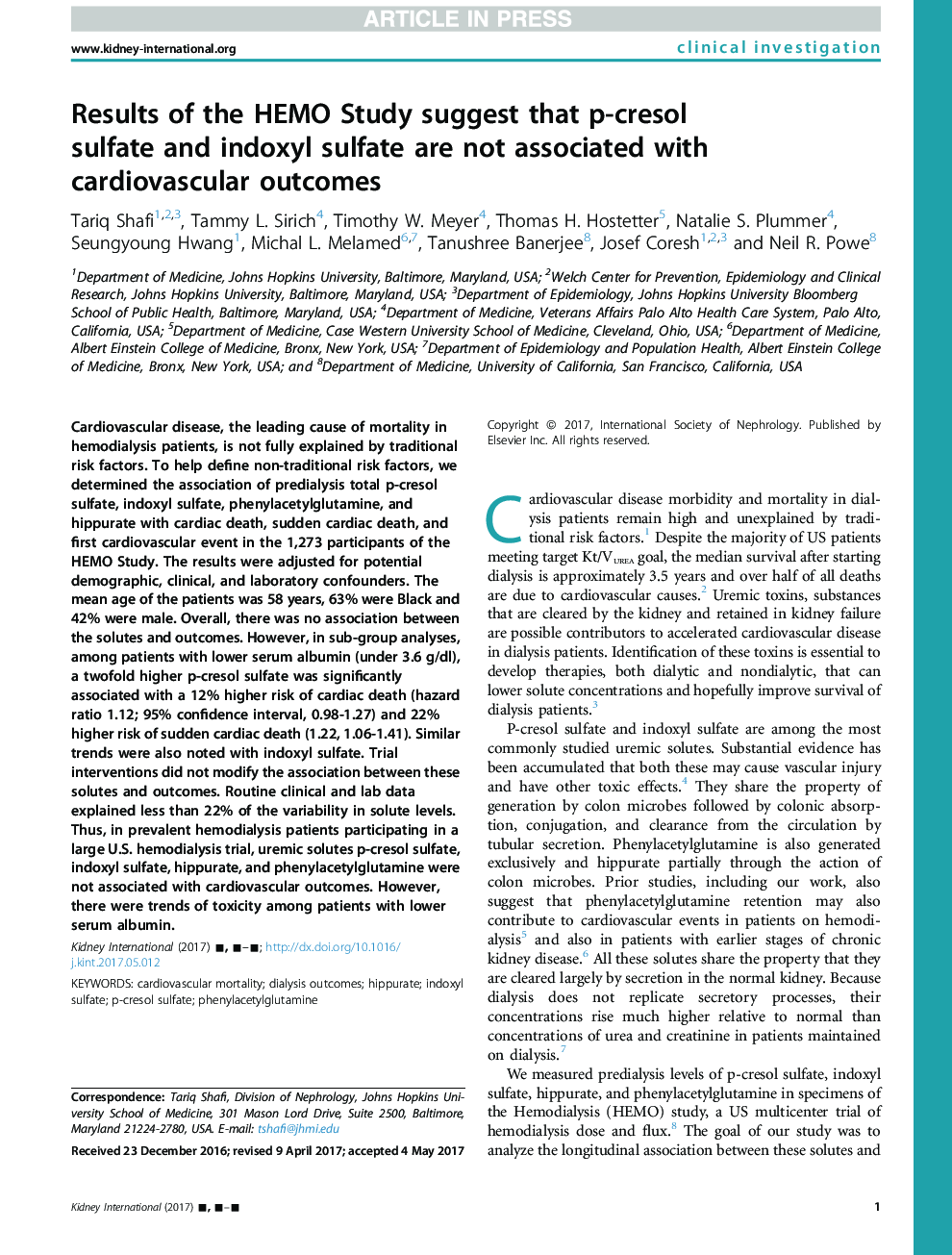| Article ID | Journal | Published Year | Pages | File Type |
|---|---|---|---|---|
| 8773125 | Kidney International | 2017 | 9 Pages |
Abstract
Cardiovascular disease, the leading cause of mortality in hemodialysis patients, is not fully explained by traditional risk factors. To help define non-traditional risk factors, we determined the association of predialysis total p-cresol sulfate, indoxyl sulfate, phenylacetylglutamine, and hippurate with cardiac death, sudden cardiac death, and first cardiovascular event in the 1,273 participants of the HEMO Study. The results were adjusted for potential demographic, clinical, and laboratory confounders. The mean age of the patients was 58 years, 63% were Black and 42% were male. Overall, there was no association between the solutes and outcomes. However, in sub-group analyses, among patients with lower serum albumin (under 3.6 g/dl), a twofold higher p-cresol sulfate was significantly associated with a 12% higher risk of cardiac death (hazard ratio 1.12; 95% confidence interval, 0.98-1.27) and 22% higher risk of sudden cardiac death (1.22, 1.06-1.41). Similar trends were also noted with indoxyl sulfate. Trial interventions did not modify the association between these solutes and outcomes. Routine clinical and lab data explained less than 22% of the variability in solute levels. Thus, in prevalent hemodialysis patients participating in a large U.S. hemodialysis trial, uremic solutes p-cresol sulfate, indoxyl sulfate, hippurate, and phenylacetylglutamine were not associated with cardiovascular outcomes. However, there were trends of toxicity among patients with lower serum albumin.
Keywords
Related Topics
Health Sciences
Medicine and Dentistry
Nephrology
Authors
Tariq Shafi, Tammy L. Sirich, Timothy W. Meyer, Thomas H. Hostetter, Natalie S. Plummer, Seungyoung Hwang, Michal L. Melamed, Tanushree Banerjee, Josef Coresh, Neil R. Powe,
